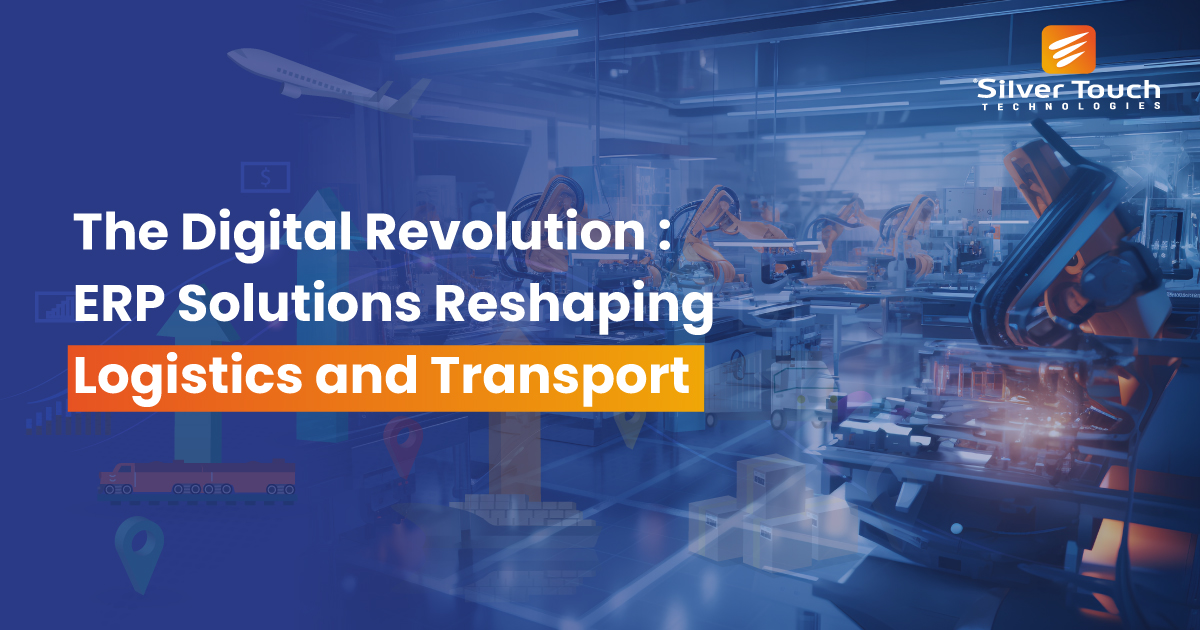The logistics and transportation sector is one of the major contributors to transforming our global economy. The industry is rapidly growing and directly impacts multiple other industries. The United Kingdom Logistics Market size is expected to reach USD 137.77 billion by 2029, growing at a CAGR of 3.55% during 2024-2029. With the rapid growth in the E-Commerce sector, the importance of transportation and logistics has become all the more prevalent.
However, with so many competitors around, establishing a concrete place in this industry has become a challenge. To become a key player in the industry, one will have to ensure proper governance, precision, and efficiency while carrying out business operations. Transportation and logistics companies will have to regularly monitor their assets and keep track of their vehicle maintenance. They will also have to be on top of their game when it comes to managing payments, bookings, and resources.
Now, the question that arises is how to simplify the various operations of the logistics and transportation industry. ERP software for the logistics industry is the solution. An ERP solution simplifies the work processes of the logistics industry. It brings together various business operations onto a single platform. So, here’s a look at how an ERP solution can transform multiple operations of the logistics industry.
ERP Software for the Transport & Logistics Industry
Enterprise Resource Planning (ERP) is used to streamline the various operations of the logistics and transportation industry. ERP systems operate multiple processes in logistics sectors without error and can handle complex situations with complete ease. With an ERP solution, multiple business units can be managed from a unified platform.
ERP solutions come with a number of advanced functionalities that are inevitable for the logistics sector. They provide a single view of the vendor portal, supply chains, and much more, making it easier for company owners to manage their business activities. Additionally, there are features to process invoices, shipments of orders, and many other things.
With ERP software for the logistics industry in place, companies can also automate and optimise some of the business processes. This not only increases business efficiency but also helps in increasing the profitability of the company.
Want to Stay Ahead in the Competitive Market? Embrace ERP Implementation for Logistics Industry

Benefits of ERP Software in the Logistics Industry
Improved Inventory Management and Stock Visibility
With ERP systems, companies have complete control over their inventories, which increases the operational performance of the business. Companies can view all the information related to their inventories, which allows them to avoid overstocking and understocking products. Product delivery also becomes much better.
Easier Data Management
ERP serves as a centralised hub for data. It manages huge chunks of data easily without any errors. The ERP system provides business owners access to shipping data like shipping taxes, manufacturing processes, etc. It also presents data in an optimised way, allowing businesses to stay compliant with the prevailing rules and regulations.
Improved Deliveries and Distribution of Goods
ERP systems accelerate delivery times in the transportation and logistics sector. These ERP systems come with a dashboard from which all details related to suppliers, distributors, retailers, and delivery platforms are viewed. ERP systems also monitor delivery zones and identify the best route for on-time delivery of goods.
Enhanced Transparency and Control
ERP systems are integrated with real-time tracking systems. This allows company owners to have a complete view of the supply chain and ensures proper transparency at each step. They can easily use ERP to track the vehicle’s location in real-time and inventory levels constantly.
Improved Employee Management
Managing the workforce is, again, an integral part of business success, and this can be achieved with ERP. ERPs keep track of employee bonuses, overtime, breaks, vacations, etc. This can be used to make better decisions regarding employees. ERP systems are also used for labour management in the logistics sector.
Better Customer Service and Relationship Management
ERP systems help business owners promptly attend to customers’ queries and offer them customised services. These days, ERP solutions come integrated with CRM modules. These modules manage various aspects of sales administration and enhance the customer-client relationship to a considerable extent.
Remote Business Access
With an ERP solution, company owners can access their business data even from remote locations. That way, they will no longer have to be logged in to the office systems at all times. Instead, they can access their account from any place having a stable internet connection. This allows for better business management.
Easy Management of Transport
One of the vital aspects of the logistics industry is the maintenance and management of transportation. As a logistics business becomes more complex, planning and maintaining transport schedules becomes really difficult. This challenge can be solved with ERP. It enhances the operational efficiency of organisations and allows company owners to have complete visibility of their business.
Secure Access to Vendor Portals
ERP systems help logistics and transportation businesses by offering company owners secure access to vendor portals. This allows them to view the status of logistics and other important data. Users can also opt for SMS or encrypted email services so that all conversations with the logistics company are updated directly on their profiles.
Challenges in the Logistic Industry Without ERP
There are multiple challenges that businesses in the transport and logistics sectors face that are resolved with ERP software for the logistics industry:
Lack of Real-Time Business Monitoring
Maintaining real-time visibility of the various business operations is integral to any logistics company. It allows companies to maintain transparency with their clients and ensures that the business operations are carried out without any hindrance.
Allocating Bulk Orders
Suppose your company receives 1,000 orders a day. Categorising the orders manually according to their type, weight, delivery location, etc., becomes really difficult without an ERP. Even the slightest mistake can cause a massive blow to the reputation of your organisation.
Increased Transportation Costs
Managing transportation is again a challenge for companies that do not rely on ERP solutions. It involves multiple tasks like route planning, vehicle management, fuel allocation, etc. All these tasks take a considerable amount of time and can lead to unnecessary expenses if not managed properly.
Inefficient Management of Data
Managing all the databases manually is a big challenge. It can lead to data inconsistencies, leading to expensive penalties. Inefficient data handling also impacts the client satisfaction rate. The business operations can be hampered considerably.
Inadequate Inventory Management and Visibility
The logistics and transportation sector constantly faces challenges because of insufficient inventories. This leads to customer losses and improper inventory management, which, in turn, gives rise to compliance issues.
Navigating Complex Taxes
Logistics and transportation companies face numerous challenges because of complex tax systems. Multiple federal and state taxes can result in a significant loss in road travel time. Managing these taxes without a proper ERP system leads to the waste of significant amounts of time and money.
Improper Account Management
The success of the transport and logistics industry largely depends on efficient account management. This involves cash management, budgeting, monitoring cash flow, etc. All these can easily be handled using ERP.
Inefficient Consignment Tracking
Customers may inquire about the status of shipments on a daily basis. Without an ERP system, keeping constant track of the consignment can be exhaustive and challenging. Inability to adhere to trade rules and regulations: The transportation and logistics sectors must follow strict compliance regulations as stated by various authorities. Without ERP, it becomes tough to constantly adhere to the prevailing rules and regulations.
To navigate these challenges, opt for an ERP system for a logistics company. This will help transform your business operations and enhance the profitability of your business.
Take your Business to the Next Level with ERP Solutions
How Can Silver Touch Assist With ERP Implementation?
If you are willing to set a benchmark in the logistics industry, reach out to Silver Touch Technologies. Silver Touch Technologies is a one-stop solution for managing all ERP needs. We offer customised ERP solutions based on the exact nature of the logistics business. Our ERP experts take your exact business requirements into account and design the best ERP for logistics that perfectly suits your diverse business needs.
Conclusion About ERP for Logistics Industry
The transportation and logistics business is highly competitive, and in order to stay ahead in this dynamic business landscape, it is inevitable that you offer something extra to the customer. This is what ERP software for the logistics industry is all about. It will give your business an extra push that will separate you from your competitors. To learn more about ERP for the logistics industry and its implementation, contact the experts at Silver Touch Technologies. We will help you with the details.
FAQs on ERP Software for Logistics Industry:
Yes, the ERP software can be customised with the required features to meet your exact needs. You can also scale your ERP system as your business grows.
The implementation time will depend on the size and complexity of the business.


